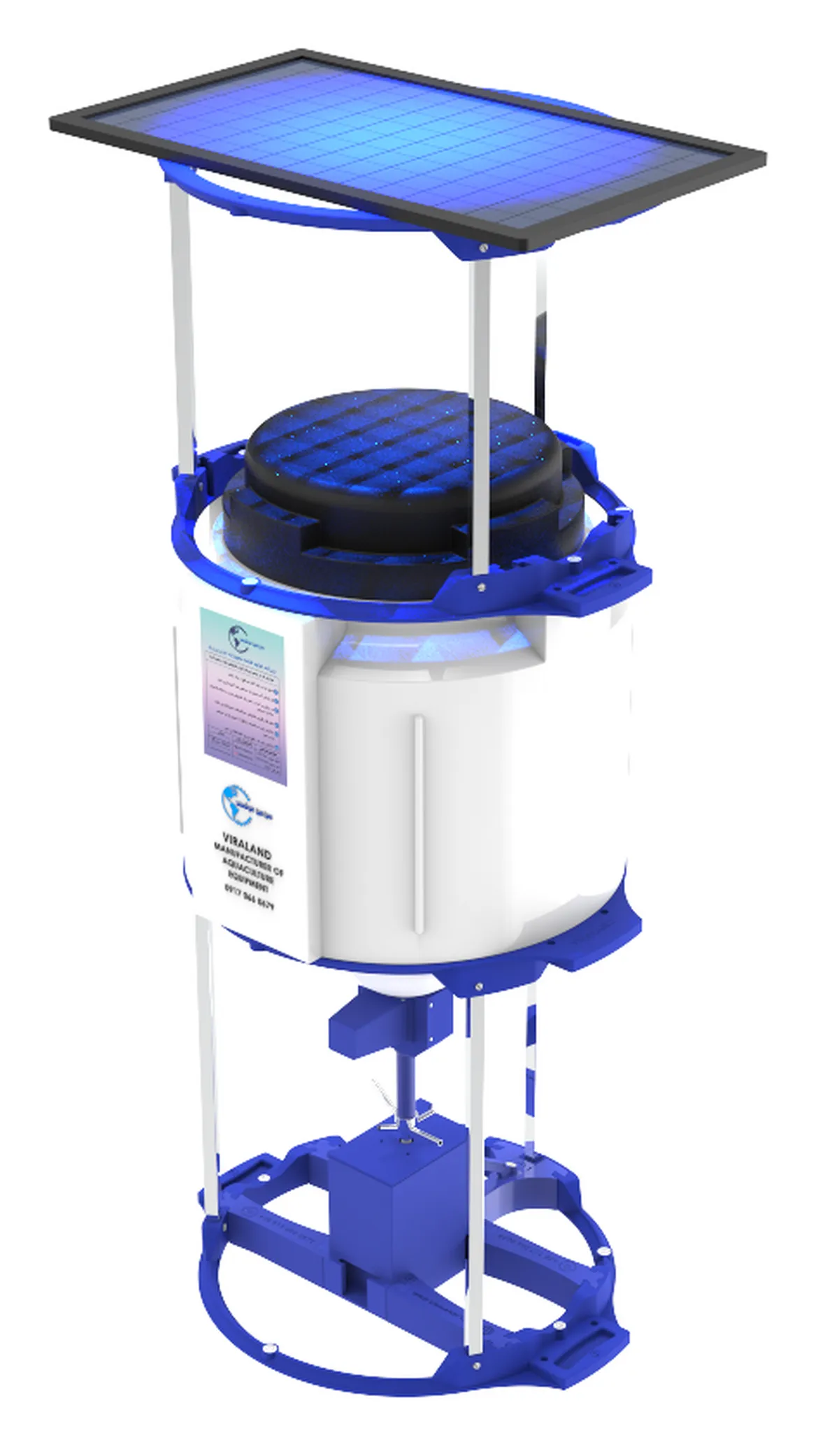Spread Feeder for Shrimp Farms Made in Iran by Using Solar Energy

“Due to the harsh weather conditions and the frequency of feeding the shrimp ponds, the workers endure a lot of hardship which causes excessive fatigue and interferes with the proper work process,” Ali Bazyar, the managing-director of the knowledge-based company, stationed at the Science and Technology Park of the Persian Gulf University, told ANA.
“We often see that a lot of food is wasted due to the hard work, extreme heat and human fatigue, and the food does not reach these aquatic animals properly,” he added.
Noting that there is a term called feed conversion ratio (FCR) in shrimp farms, Bazyar said, “This coefficient shows how much each aquatic organism has grown for the amount of food it received. The use of spread feeding device has reduced the food conversion factor for each farm by a tenth.”
He said that his company’s research and development team decided to use solar panels for shrimp feeding devices since the use of an electric generator faces different difficulties, including cabling, pollution, noise, and the risk of electrocution.
Earlier reports in 2022 said that a professor at Islamic Azad University-Qeshm branch had established a bank of shrimp breeding with the help of genetics.
”Currently, I am in charge of the Qeshm Higher Education Institute and the head of the Fisheries and Agriculture Department of the Qeshm Free Economic Zone Organization,” Mansour Azad, a professor of the Islamic Azad University (IAU)-Qeshm branch, said while elaborating on his own shrimp breeding method.
He said that they have focused their business on fisheries and aquaculture on Qeshm island, which is located in the South part of Iran in the Persian Gulf.
“The service we offer is the creation of a shrimp breeding bank to produce Litopenaeus Vannamei shrimp products. This shrimp is not indigenous to our country, but it is now known as a cultured species in the entire world,” the IAU professor said.
“We hope that production of Litopenaeus Vannamei shrimp in our country will reach 70,000 tons this year despite the fact it is still a very low level compared to the world production volume. Our effort is to be able to develop the shrimp breeding industry in the suitable lands that exist especially in the littoral regions of the Persian Gulf and the Sea of Oman,” Azad added.
4155/v





















